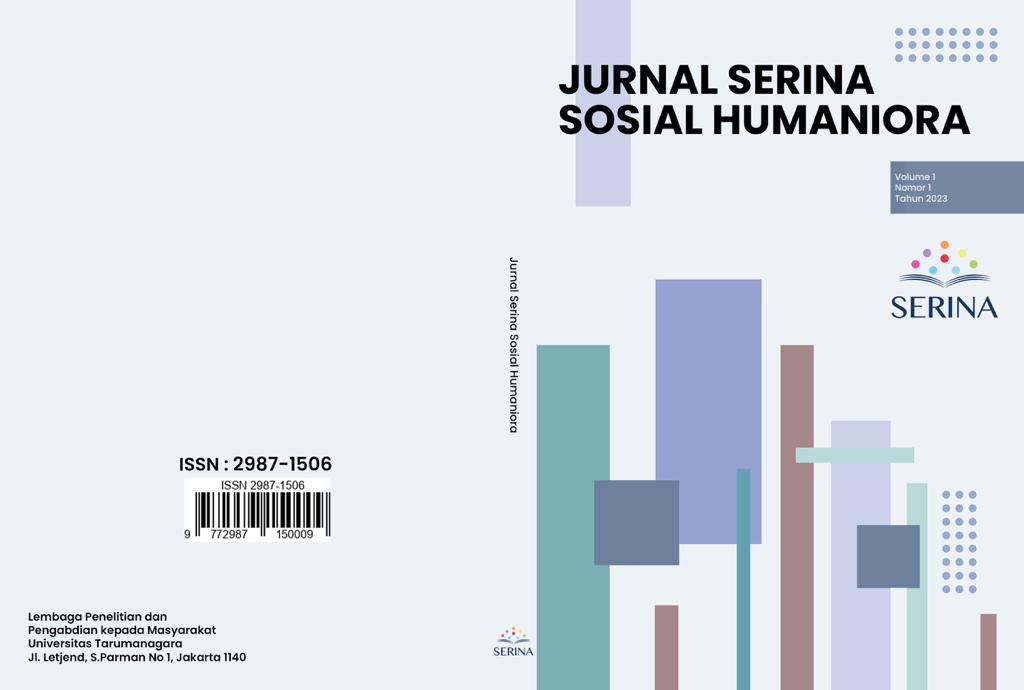TINDAK PIDANA TERHADAP PELAKU CYBERPORNOGRAPHY BERDASARKAN UNDANG-UNDANG NO. 19 TAHUN 2016 MENGENAI ITE
Main Article Content
Abstract
In the era of globalization, where people are very loose in their behavior, it has caused various consequences, both negative and positive. Internet pornography or cybersex is one of the bad effects of this technological development. Internet pornography or cybersex can arise due to several factors, such as poverty, lack of family affection, less strong faith, and fulfilling a luxurious lifestyle. The spread of cyber-pornography on the Internet today is also a critical conflict that the world is going through, including Indonesia, which is participating in the use of universal technology growth. The purpose of this writing is to study the factors that are the cause of the rampant acts of cyber pornography and the legal policies that apply to perpetrators of cyber pornography crimes. In this article the author makes use of normative research methods, this means that legal research is aimed at finding the truth of coherence, namely whether the rule of law is balanced with legal norms, whether individual behavior is in accordance with existing legal norms or legal principles. The results of the research conclude that several legal provisions that compose the criminal act of the perpetrators of spreading Cyber Pornography, namely: Law no. 44 of 2008 concerning Pornography, Law no. 11 of 2008 in conjunction with Law no. 19 of 2016 regarding information and electronic transactions, as well as Law no. 36 of 1999 concerning Telecommunications with the criminal sanctions listed in Article 45 of the ITE Law is punishable by imprisonment for a maximum of 6 (six) years and/or a maximum fine of Rp. 1,000,000,000.00 (one billion rupiah).
Pada era globalisasi yang masyarakatnya amat longgar dalam bertingkah laku ini telah menimbulkan berbagai akibat baik yang bersifat negatif serta yang bersifat positif. Pornografi internet atau cybersex ialah salah satu dampak buruk dari perkembangan teknologi ini. Pornografi internet atau cybersex ini dapat muncul karena beberapa faktor, seperti kemiskinan, kurangnya kasih sayang keluarga, iman yang kurang kuat, serta demi memenuhi gaya hidup yang mewah. Penyebaran cyberpornografi di Internet pada masa kini juga merupakan konflik genting yang dilalui dunia, termasuk Indonesia yang turut serta menggunakan pertumbuhan teknologi universal. Tujuan dibuatnya penulisan ini yaitu untuk mempelajari faktor yang menjadi penyebab maraknya tindak cyberpronography serta kebijakan hukum yang berlaku terhadap pelaku tindak pidana cyberpornography. Pada artikel ini penulis memanfaatkan metode penelitian normatif, hal ini berarti penelitian hukum ditujukan untuk mencari kebenaran koherensi, yaitu apakah aturan hukum berimbang dengan norma hukum, sesuaikah perilaku individu dengan norma hukum atau asas hukum yang ada. Hasil penelitian menyimpulkan bahwa beberapa ketetapan hukum yang menyusun tindak pidana pelaku penyebaran Cyber Pornografi, yaitu: UU No. 44 Tahun 2008 mengenai Pornografi, UU No. 11 Tahun 2008 jo UU No. 19 Tahun 2016 mengenai Informasi dan transaksi elektronik, serta UU No. 36 Tahun 1999 mengenai Telekomunikasi dengan sanksi pidana yang tertera pada Pasal 45 UU ITE diancam dengan penjara paling lama 6 (enam) tahun dan/atau denda maksimal sebesar Rp 1.000.000.000,00 (satu miliar rupiah).
Article Details
Section
References
Cayo, P. N. S., & Merita, E. (2020). Sanksi pidana terhadap pidana cyberporn berdasarkan undang-undang nomor 16 tahun 2016 tentang perubahan atas undang–undang nomor 11 tahun 2008 tentang informasi dan transaksi elektronik. Justici, 12(1), 2-7.
Marzuki, P. M. (2017). Penelitian hukum: Edisi revisi. Kencana Prenada Media Group.
Rifauddin, M. (2016). Fenomena cyberbullying pada remaja. Jurnal Ilmu Perpustakaan, Informasi, dan Kearsipan Khizanah Al-Hikmah, 4(1).
Simega, V. B. Y. (2021). Kebijakan hukum terhadap tindak pidana jasa cyber pornografi berdasarkan undang-undang no 11 tahun 2008 jo. undang-undang nomor 19 tahun 2016 tentang ITE. Skripsi. Universitas Bhayangkara. http://eprints.ubhara.ac.id/712/1/SKRIPSI%201611111111%20VICKY%20BELLA%20YOYO%20SIMEGA.pdf
Syam, N. (2010). Agama pelacur: Dramaturgi transendental. LKiS.
Undang-Undang Nomor 11 Tahun 2008.
Undang-Undang Nomor 19 Tahun 2016.
Undang-Undang Nomor 36 Tahun 1999.
Undang-Undang Nomor 44 Tahun 2008.

